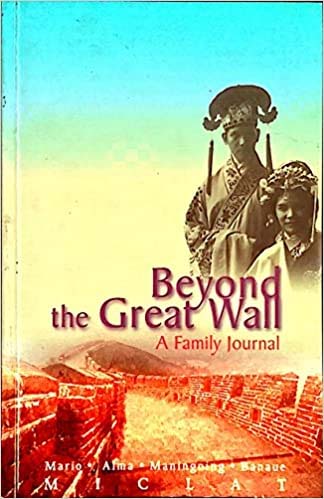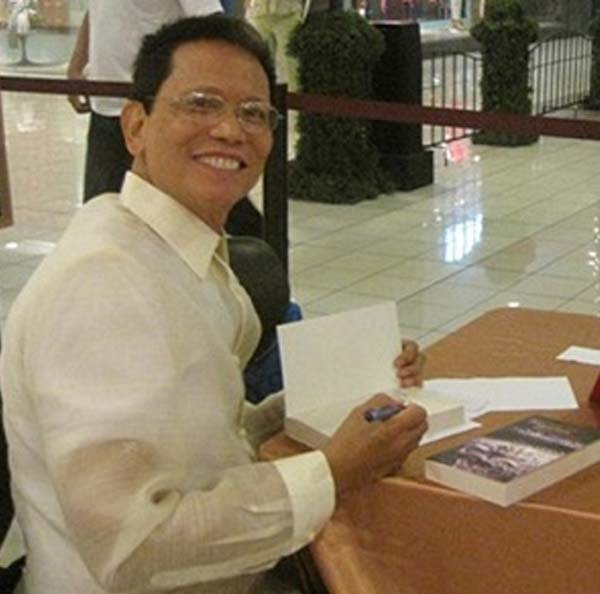First published in Tulay Monthly, Chinese-Filipino Digest 1, no. 1 (June 1988): 6, 12.
In the same manner as one “learns warfare through warfare,” you learn language by speaking it,” said our interpreter-guide, Comrade Zhang. “Now that you are in China,” he said, “you will learn Chinese.”
Waving given such advice after we requested for a formal language lesson, he remained scarce, or so I imagined. And just like any g-p-c-r-isms, his idea sounded loud but hollow.
My wife and I arrived in China during the time of the so-called “great proletarian cultural revolution, “g-p-c-r” for short.
Now, learning Chinese surrounded by 800 million Chinese was easily said than done, especially when one had to live in, well, an enclave exclusively for foreigners. And if his contact with the common people was limited to that of the cooks, the driver, and other service personnel in our house.
Besides, the six units of Chinese I learned in college here in the Philippines were only enough to ask them their names.
“Ni jiao shen me ming zi?”
You see, six units, six words, excluding the quotation and question marks in the sentence, the other things I learned in those six units might as well be Golagat or any foreign language to our friendly young companions at home.
The next time he pointed at himself to refer to himself, I thought he was bitten by a bee. He was pointing at his nose!
So how did I learn my Chinese?
Well, it was during one propitious day in winter, when the sun shone in all its glory. Coming from our tropical islands, Peking winter seemed to me too long, too cold, too dark, and too grey at that time.

Having stayed there for many years, I would say that, that impression was not quite accurate. Peking winter is actually not the above, but only long, cold, dark, and grey. The great writer Lo Hsun would refer to a “bitter Beijing winter.”
Now if the sun shone, the day must really be a propitious one. Bask in the sunlight, one would. And I did. I drew the curtain in the sala. I removed my long, grey winter tunic. I stayed lying in the midday sunlight for half an hour or so. And it was warm. And it was a mistake. And I caught pneumonia.
So, what was so propitious about that?
Well, it started my lessons in the Chinese language. I swear the lesson was effective. Many foreigners have gone to China, stayed there for years, and left without learning the language. I must confess that after the g-p-c-r, the schools would reopen, I would take formal language lessons, and earn a certificate for my efforts.
But I would go back to that winter day whenever l am asked how I learned Chinese.
As I have said earlier, Xiao Zhang was such a nice guy. He would merrily come, knocking as our room every morning bringing with him a thermos flask and a fresh pack of cigarettes. I did not smoke at the time but got my daily ration of cigarettes just the same.
“Chou yan,” he would tell me, pointing at the cigarettes. “Bu chou yan,” I would answer. No smoke, I do not smoke. With my pneumonia, I had to go to the hospital. The doctor told me, “Zhu yuan.” I said, “bu, no!” But the doctor insisted. Gosh. I told myself. He was the first doctor I met who insisted that his sick patient smoke. For hospitality’s sake? I did not realize that what he wanked to say was that I had to be hospitalized. Now I had to remember that. Zhu yuan.
Alone in my hospital room, the nurse entered as I was having my meal. She asked me if I needed something. Peking food, not to say Peking hospital food, was not exactly our idea of Chinese food. It was not really unpalatable, but the uninitiated would miss the cuisine of the Cantonese, or the Sichuanese, and our native patis.
And so, to improve the taste of the vegetable and meat personally laid in front of me by the cook earlier, I asked the nurse for chilli. I said I wanted la jiao, which I pronounced something like la chiao. The nurse was surprised and left.
She came back after a long while. She said I just had a very high fever, and surely I needed rest? In fact, the doctor had so decreed. Why am I now asking for lan qiu, which was pronounced something like lan chiou. Surely she says the patient was still too weak to play basketball?
Aiya, my friends, I was beginning to really learn my Mandarin!
I have been staying in the hospital for quite a time and was already beginning to communicate more intelligently with the hospital staff when the doctor came to tell me something.
“Ni xian zai haole ma (Are you feeling well now)?” he asked. I said yes. He said I must “Chu yuan.” “Bu!” I said I needed no further hospitalization. “Wo hao le (I am already well),” I said. “Chu yuan,” he politely insisted. Luckily, I now had a small Chinese-English Dictionary with me which my wife brought one day. “Chu yuan,” was not “Zhua yuan,” and it simply meant that I have to be discharged from the hospital.
I was young then, in my early 20s, and was able to take all the vicissitudes of learning a language so different from our native Malayo-Polynesian or our adopted Indo-European. But I had to realize that learning a language did not only involve learning its pronunciation, syntax, and vocabulary. It involved learning a whole culture. I had to understand that if the Filipino took pride in his youth, survives in youth, the Chinese survives in savoring wisdom in the old. But, that now, is another story.
***
Dr. Mario Miclat (1949-2021) stayed in China for 15 years. He was former dean and professor of the UP Asian Center and founding member of the Philippine Association for Chinese Studies.
